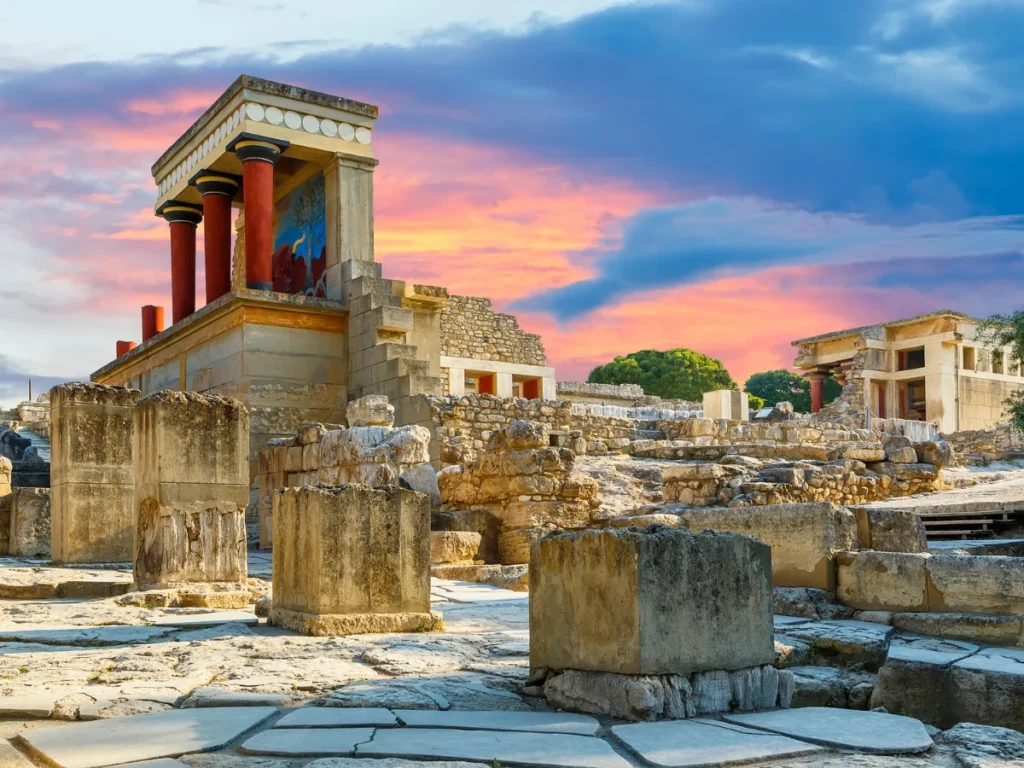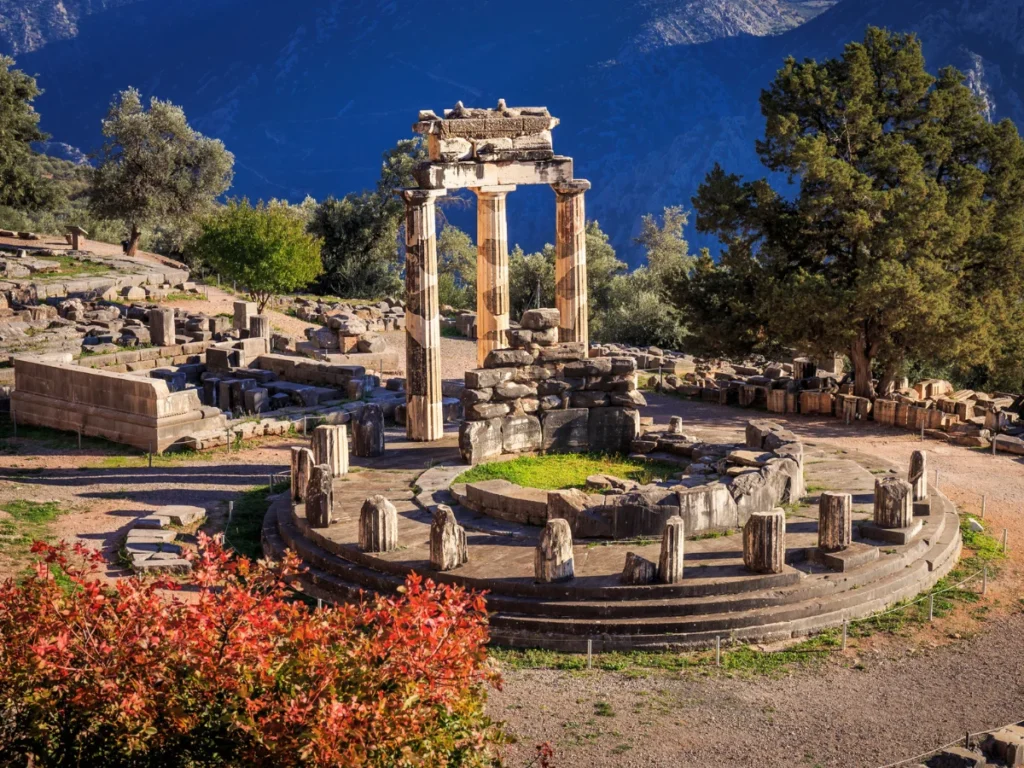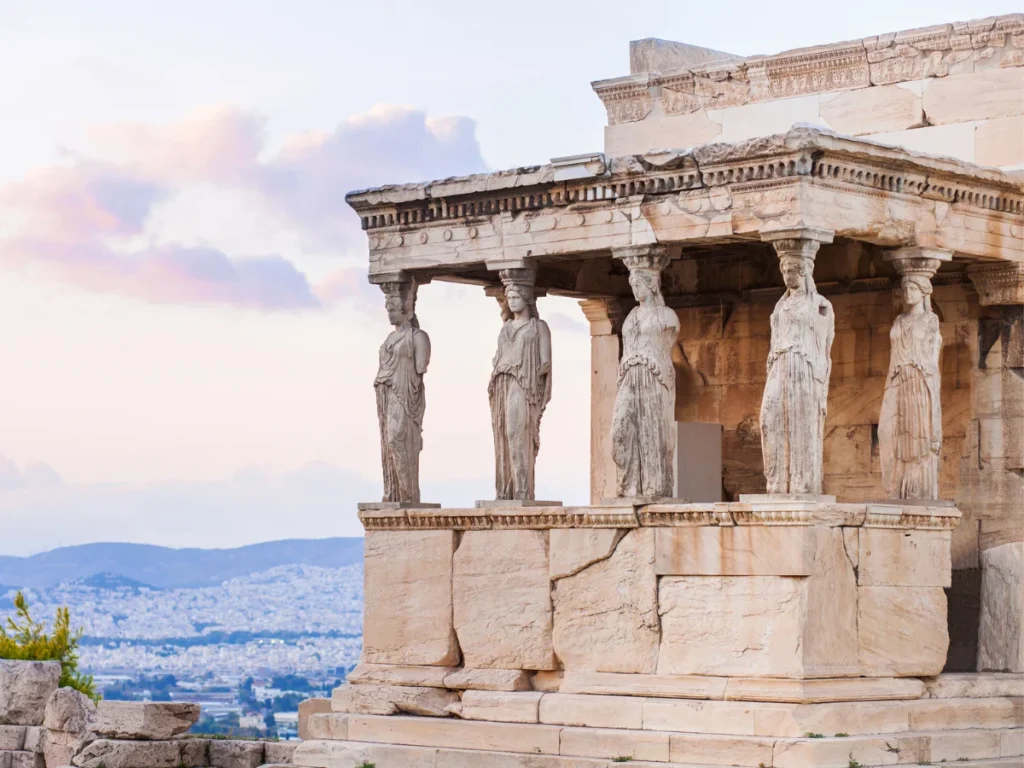The City-state of Crete
The City-state of Crete, with its rich history, strategic location, and cultural contributions, holds a distinctive place in ancient Greece. Emerging from the illustrious Minoan civilization during the Bronze Age, it evolved into a pivotal player during the Classical Era and Hellenic period. Prominent Cretans like Epimenides and El Greco left enduring legacies. Crete’s unique blend of cultures, maritime prowess, and linguistic diversity make it an enduring symbol of Greek civilization’s enduring spirit and global influence.

The City-state of Crete
Crete, an island city-state in ancient Greece, holds a unique place in history due to its rich cultural heritage, strategic location, and contributions to the Greek world. This exploration delves into its early history during the Bronze Age, with a focus on its significance during the Classical Era and Hellenic period, as well as notable individuals who hailed from Crete.
Bronze Age Crete: The Minoan Civilization
Crete’s history dates back to the Bronze Age, where it was the heart of the enigmatic Minoan civilization, known for its advanced architecture, art, and maritime trade networks. The palace of Knossos, a sprawling complex of interconnected structures, exemplified the sophistication of Minoan society.
Classical Era Crete: Struggles and Conquests
During the Classical Era, Crete, like many Greek city-states, faced external threats and internal conflicts. It was subjected to Athenian control during the Peloponnesian War but later regained its independence. Crete’s significance lay in its naval power and strategic position in the Mediterranean. Making it a coveted prize for competing Greek states and foreign powers.
Prominent Cretans and their Impact
Epimenides
A philosopher and religious figure hailing from Crete, Epimenides gained fame for his profound wisdom and his pivotal role in religious ceremonies. His expertise in sacrificial rites is believed to have played a crucial part in cleansing Athens of a devastating plague.Epimenides the Cretan Paradox
Epimenides is also known for the “Cretan Paradox,” a self-referential paradox where he stated, “All Cretans are liars.” This paradox has puzzled philosophers for centuries.El Greco (Domenikos Theotokopoulos)
A famous Renaissance painter, El Greco, hailed from Crete before relocating to Italy and eventually settling in Spain. His distinctive style and artistic innovation left a lasting mark on Western art.
Unique Aspects of Crete
Crete’s uniqueness stemmed from several factors:
Cultural Syncretism
In Crete, cultural syncretism flourished, driven by its strategic position. Minoans, Mycenaeans, Dorians, and various other civilizations left their mark, creating a rich and diverse society.Language and Scripts
The Cretan city-states, such as Knossos, had their own scripts. Including Linear A and Linear B, which provide valuable insights into their language and administrative practices.Nautical Prowess
Crete boasted unmatched maritime prowess, with its ships serving vital functions in Mediterranean trade and warfare. This prowess not only fueled its economic growth. But also bolstered its military strength.
Legacy and Influence
Modern Greece reverberates with the enduring legacy of Crete, a land steeped in cultural and historical importance. Its ancient traditions, remarkable architecture, and the legacies of its luminaries intrigue historians, archaeologists, and adventurers alike. Indeed, Crete stands as a living testament to the indomitable spirit of Greek civilization and its far-reaching influence on global history.
More History

Theogenes’ crowning achievements
Theogenes’ greatest triumphs included numerous victories in ancient Greek games, earning him admiration and fame as a legendary athlete in the hearts of his fellow Greeks.

Poseidon’s creation of the horse
Poseidon, Greek god of the sea, is credited with creating the horse by striking the earth with his trident. This mythical act birthed this majestic creature in ancient Greek folklore.

The Birthplace of the Centaurs
The Centaurs, half-human, half-horse beings, were believed to originate from the region of Magnesia in ancient Greece, a place deeply intertwined with their mythological birth and existence.
